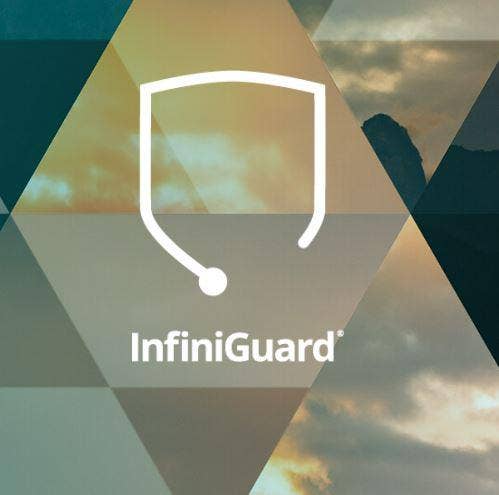Infinidat Introduces InfiniSafe: Cyber Resilience For High-Performance Storage
‘Storage is critical from the core to the edge. Focusing on cyber security at the network and the edge is not enough. For partners working with customers on cybersecurity plans, storage needs to be included. Customers need to be able to restore from both their primary and secondary storage,’ says Eric Herzog, Infinidat’s chief marketing officer.

Infinidat, a provider of high-performance storage technology, Wednesday upgraded its InfiniGuard data protection appliance line with the introduction of InfiniSafe, a technology aimed at making the InfiniGuard platform safe against cyber attacks.
Infinidat also doubled the performance of its InfiniGuard appliances, said Eric Herzog, chief marketing officer at the Waltham, Mass.-based vendor.
InfiniGuard’s InfiniSafe is all about cyber resilience, which is the biggest concern of chief information officers everywhere, Herzog told CRN.
[Related: 2021 Storage 100: The Data Conversation Starts Here]
For solution providers focused on storage, baking in cyber resilience is increasingly a requirement, Herzog said.
“Storage is critical from the core to the edge,” he said. “Focusing on cyber security at the network and the edge is not enough. For partners working with customers on cybersecurity plans, storage needs to be included. Customers need to be able to restore from both their primary and secondary storage.”
Furthermore, Herzog said, not including cybersecurity as part of storage means leaving money on the table.
“Tell customers they need to update their edge, but also make sure storage resilience is built-in,” he said.
InfiniSafe, when used with InfiniGuard, designates a backup set as immutable to prevent anyone from deleting or modifying that data, Herzog said. InfiniSafe also sets up a logical airgap, which is a separate management schema from the immutable snapshots, he said. Customers can airgap locally or within their purpose-built backup appliance, he said.
InfiniSafe also creates a fenced network, Herzog said.
“Customers put data in the fence and then do a forensics check to ensure there’s no malware,” he said. “Competitors typically require extra data capacity as well as a second appliance to do this. We can do it with one appliance, all without the need to move the data. This gives customers a known recover point.”
Recovery of data from InfiniGuard with InfiniSafe is typically under 30 minutes, Herzog said.
“In a recent demo, a half-petabyte of data was recovered in 12 minutes and 46 seconds,” he said. “That was a fully-usable data set.”
Infinidat has proven itself with customers, said Bob Elliott, vice president of storage sales at Mainline Information Systems, a Tallahassee, Fla.-based solution provider, which has worked with the vendor for the last six years.
Mainline’s 2021 growth with Infinidat earned them the Infinidat Partner of the Year Award.
“Infinidat has incredible performance in a consolidated footprint with massive economies of scale,” Elliott told CRN. “Customers can consolidate multiple storage footprints into a single box. For customers with large amounts of data, Infinidat is an option that must be explored. They have the ability to consolidate multiple footprints into one, cost effective, high performing footprint. When coupled with their capacity on demand offering, they provide customers with non-disruptive growth quickly and efficiently. In addition, with InfiniSafe, Infinidat has provided a cyber resilient protection solution to fight off ransomware attacks.”
The performance of the InfiniGuard data protection appliances is now double that of previous versions, Herzog said. This was done with new CPUs, as well as increasing the number of processors per node to 20 compare to three per node previously, he said. The company also refreshed the software, and updated its backend storage, he said.
InfiniSafe is being provided to Infinidat InfiniGuard customers at no extra charge, Herzog said.
Infinidat currently gets about 90 percent of sales via indirect channels on a worldwide basis, and 75 percent specifically in the U.S., Herzog. “Our target is 100 percent,” he said.